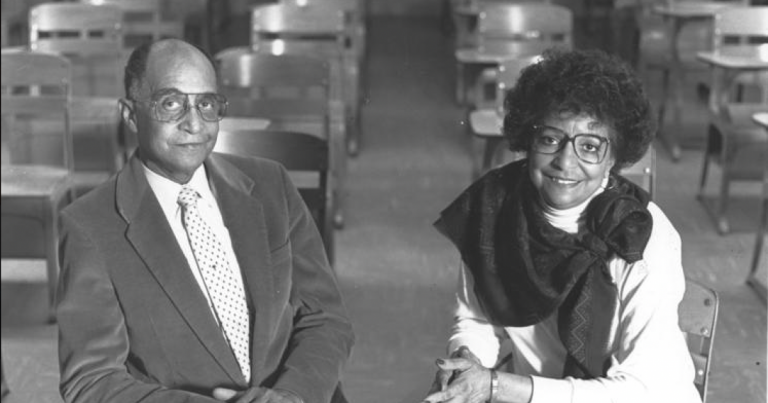COLUMBIA — Eliot and Muriel Battle. Their last name might sound familiar to you, but their story is all the more impactful.
“I think he and Muriel made tremendous contributions to the city of Columbia in terms of race relations — by integrating Hickman High School and integrating communities in which they lived,” said Gary Kremer, executive director of the State Historical Society of Missouri.
The two educators paved the way for the future of mid-Missouri.
After moving from Mobile, Alabama, Eliot started at The Dalton School in Chariton County.
“It was a place where he taught vocational education, especially farming.” Kremer said. “But it attracted students from about a nine county area.”
Eliot and Muriel both took jobs at Douglas School in 1956 when they moved to Columbia.
“Which was Columbia’s Black elementary and high school.” Kremer said. “And then eventually, in about 1960, [Eliot] became the first Black faculty member at what was then the all white Hickman High School.”
Muriel also became the first Black teacher at West Junior High, where she later became principal. Kremer recalls their interaction during his tenure at Lincoln University where Muriel later served on the Board of Curators. He still remembers the inspiring feeling Muriel created for those around her.
“I knew her as this very gracious, well spoken, articulate, smart woman who obviously had a lot of experience in education,” Kremer said. “I actually met Elliot, because of my research on the Dalton vocational school when I found an old yearbook that had his picture in it and Muriel’s picture in it. And so I tracked him down to talk to him about his experiences there.”
Both Eliot and Muriel advocated for a world where African Americans were treated as equals, particularly in the field of education.
“In the Battle’s case, they had family members who were successful in the business and educational community,” Kremer said. “And I think they were like so many other African Americans, who had been taught to understand that education was a key to upward mobility. And this is especially true, coming out of World War II. Eliot was a veteran and served in the war.”
Kremer notes that the Battles were a team, and you couldn’t have Eliot without Muriel. Even when faced with opposition and bigotry, they worked tirelessly together to end segregation in Columbia Public Schools.
“It wasn’t always as pleasant as we would like to think that there was a lot of difficult times,” Kremer said. “The parents always tried to protect the children from the uglier aspects of, of white racism, which was impossible to do, frankly. But I think the city of Columbia should be eternally grateful for the Battles and the Battle family and their contributions; not just to education, but to social interaction and to this community generally.”
Muriel Battle passed away in 2003. Columbia’s Battle High School was named in her honor.
Eliot was able to be present for the school’s dedication in the summer of 2013. He passed away just a few days after the event. In 2015, Battle Elementary, named for Eliot, opened.
Kremer said their legacy lives on in the belief that everyone in their community deserved to be treated equally and have the opportunity to grow through their education.
“He wasn’t just anyone, he was an integrationist, who believed in America; in some ways more than many white Americans did,” Kremer said. “He believed in the promise of America. And he carried that belief with him to his grave.”




